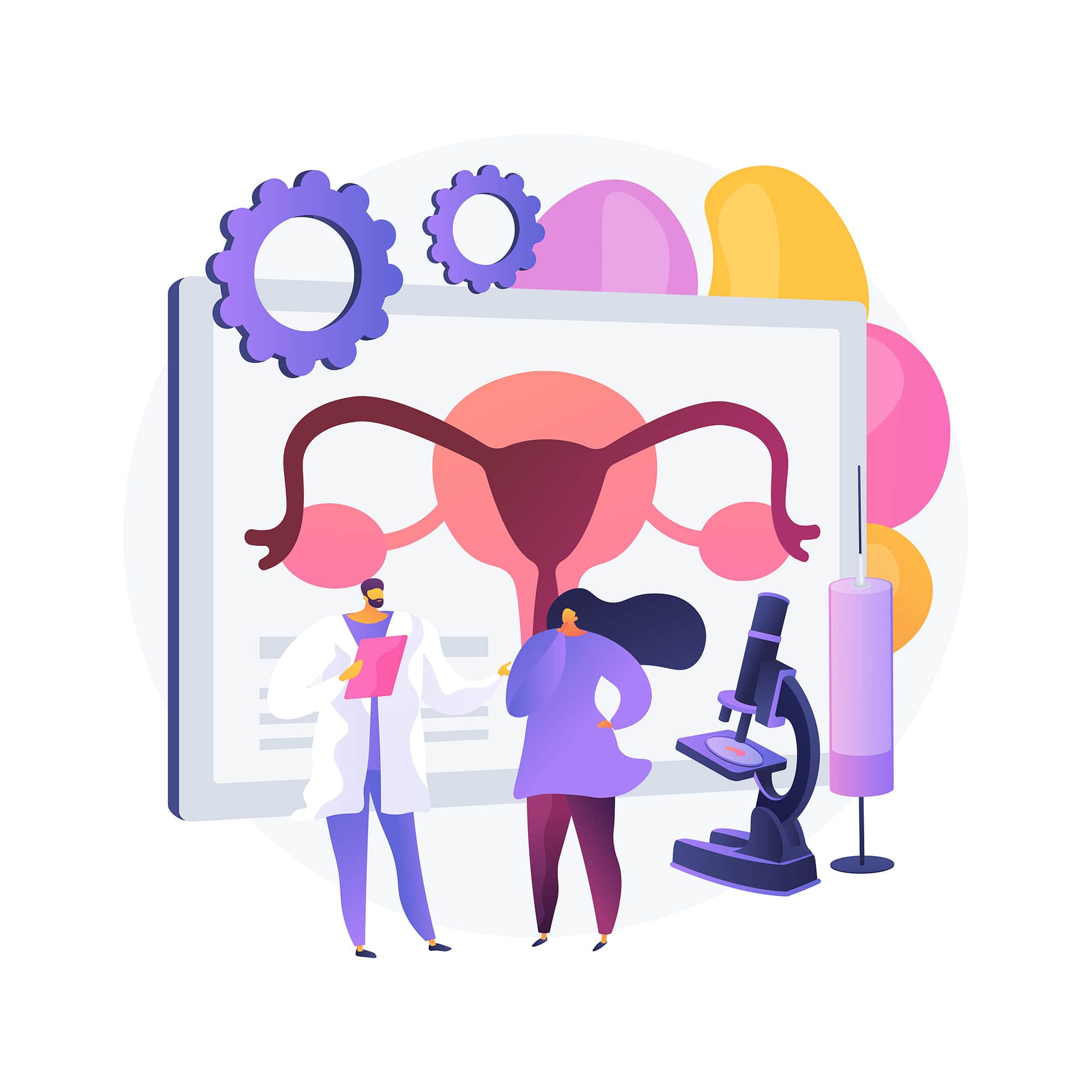HIGHLIGHTS
20 December 2020
5 yoga poses for couples to Enhance your relationship with your partner, level up your happiness in bed.
READ MORE20 December 2020
7 the procedure takes care of yourself and the wife before collecting eggs-collecting sperm.
READ MORE20 December 2020
Protein, a key nutrient of a woman, preparation for pregnancy- preparation for an egg collection.
READ MORE
Why Is It Important for a Health Check Up for Both Male and Female Before Getting Pregnant?
READ MORE
Destination IVF: Why Bangkok is a Premier Choice for International Patients Seeking Fertility Treatment
READ MOREThe Advantages and Disadvantages of IVF
 21 Dec 2021
21 Dec 2021

For those that have struggled to conceive a child, in vitro fertilisation (IVF) treatments can be a viable solution. IVF has now become the most commonly chosen form of assisted reproductive technology and is often considered a solution of last resort. Before anyone goes forward with this process, it is important to understand what is involved and the pros and cons.
What is IVF?
IVF refers to a series of procedures that are used to conceive a child. Those that opt to pursue these treatments do so mainly due to having fertility problems or concerns about genetic problems being inherited by their offspring.
The process begins with an assessment to identify possible causes of infertility and work towards solving them. Thereafter, the woman is given hormone injections to help stimulate greater production of eggs and their maturation. The eggs are later retrieved and taken to be mixed with sperm from the male in a lab setting. Where the fertility problem relates to the production of eggs and/or sperm, donors may be used.
The fertilised eggs are given a few days to grow. Thereafter they may be screened for genetic conditions and gender. The doctor will then select one to three of the best embryos and transfer them into the woman’s uterus in hopes they will result in implantation. The embryos that remain can be preserved cryogenically for later use or disposed of. A pregnancy test is performed about two weeks later to confirm the procedure was a success.
Advantages of IVF
Fertility Treatment
The IVF process begins with assessing the reproductive and general health of both the man and woman. This process will often identify conditions that would otherwise have gone unnoticed. From low sperm count to blocked tubes, there are many reasons people can find themselves infertile. For women with tube damage but able to produce viable eggs, IVF is an ideal solution.
By identifying and resolving whatever issue, IVF increases the chances that couples can conceive using their own eggs and sperm, ensuring that biological link. It can also bring clarity to what often becomes a stressful situation of trying to get pregnant without result. Once a couple knows what the problem is, they can then start considering solutions.
Increased Chances of Pregnancy
Women over the age of 35 years find it more difficult to conceive. Their fertility declines more drastically from their late thirties. This is why experts recommend women of this age see a fertility specialist if they find themselves unable to conceive after just 6 months of regular unprotected sex. Those over the age of 40 years are advised not to wait before seeing their doctor.
IVF is highly beneficial to women of this age group that want to conceive a baby. Rather than risk continued failures at a time when their fertility is on the decline, they can seek medical intervention to improve the chances of a successful conception.
Resolves Idiopathic Subfertility
Some individuals may not have a problem producing healthy eggs or sperm. However, for some reason, when they encounter each other, fertilisation fails to occur. Without an embryo forming, pregnancy cannot occur. IVF allows for fertilisation to be managed in a lab setting. It can improve the chances of successful fertilisation. If the problem however repeats and failed fertilisation occurs, the couple will then know the problem and can discuss possible solutions with their specialist.
IVF treatments may not always work out in the beginning, but they can bring clarity to the situation couples are facing. Once the problem is identified, they can then figure out what choices to make in overcoming it.
Screening
As said, IVF involves screening of eggs, sperm and embryos. This is to ensure that genetic abnormalities can be detected and avoided. Because multiple eggs and sperm are retrieved, there are better chances of healthy embryos being formed.
From the embryos that result, further screening is done to ensure they are indeed healthy and establish their gender. For families that desire gender selection, IVF enables them to have better control over the composition of their children.
Disadvantages of IVF
Cost
IVF treatments can be quite expensive. Especially for couples that may require several rounds of treatment or have complicated fertility problems that need to be resolved. In some countries, it is even possible to take loans to fund these treatments. A better solution may however lie in travelling overseas for treatment. IVF is among the most popular treatments sought after in countries that cater to medical tourism. You may find a similar quality of healthcare as is available in the west at a much-reduced rate in countries like Thailand.
Multiple Pregnancies
There is an increased likelihood of conceiving more than one baby with IVF treatments. Most specialists prefer to transfer embryo up to 3 embryos into a woman’s uterus to increase chances of successfully becoming pregnant. However, while conceiving more than one baby may seem like a win when you have been struggling with infertility, this kind of pregnancy is inherently riskier.
Multiple pregnancies have an increased risk of resulting in premature babies with health complications like lung development problems, learning disabilities and behavioural issues. There is also an increased risk of the woman developing pregnancy-related high blood pressure and gestational diabetes. She is also increasingly likely to deliver via caesarean section and suffer haemorrhage problems.
While transferring one embryo into the uterus is the safest option, there is an increased chance of the procedure failing.
Birth Defects
Those that suffer fertility problems tend to be at higher risk of conceiving children with birth defects than the rest of the population. Age can also be a factor. Many women that wait to have children into their late thirties are also at greater risk of them having birth defects.
While IVF includes screening for genetic anomalies, it does not prevent them. This means if all the resulting embryos have genetic problems, then none may be viable to transfer into the woman’s uterus. This may mean having to restart the process again in hopes of securing better eggs and/or sperm. This can prove costlier than anticipated and add extra physical and mental stress to the hopeful parents.
Miscarriage
The chance of miscarriage in women that have conceived through IVF is about the same as with women that conceive naturally. The risk of miscarriage however tends to increase with age. Because IVF is often opted for by women that are older and have fertility problems, they tend to suffer miscarriages more frequently. This means that the older a woman is when undergoing IVF treatment, the more likely they will require several rounds of treatment to achieve their goal of birthing a healthy baby. This can be a bigger burden physical, mentally and financially.
HIGHLIGHTS
20 December 2020
5 yoga poses for couples to Enhance your relationship with your partner, level up your happiness in bed.
READ MORE20 December 2020
7 the procedure takes care of yourself and the wife before collecting eggs-collecting sperm.
READ MORE20 December 2020
Protein, a key nutrient of a woman, preparation for pregnancy- preparation for an egg collection.
READ MORE
Why Is It Important for a Health Check Up for Both Male and Female Before Getting Pregnant?
READ MORE


















